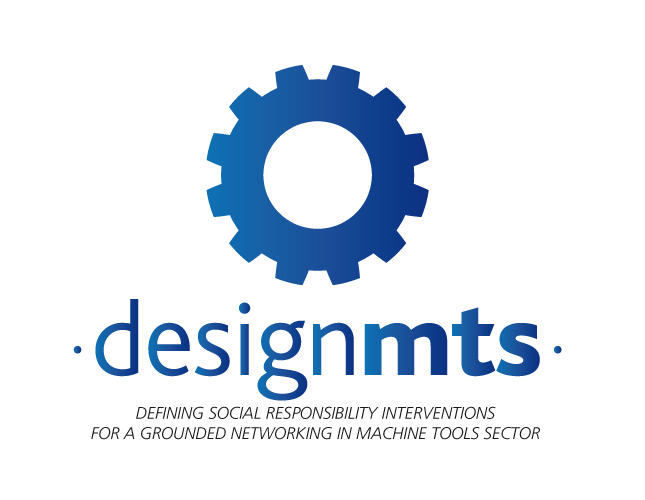Design-MTS: A Multi-Stakeholder CSR Platform in the Machine Tool Sector

At the level of public policy, the European Commission (EC) is a leader in the promotion of corporate social responsibility (CSR) and this role is increasing in importance. The socially responsible behaviour of companies is considered as an important value of the European Union.CSR is seen by the EC as the process of integrating ethical, social, environmental concerns as well as consumer and human rights into business strategies and operations, in close cooperation with stakeholders. The EC approach to CSR is not prescriptive: it rather encourages the application of good practices and supports companies to adhere to major CSR guidelines and to create shared value both for themselves and the society at large.
Following this approach, the EC has elaborated a strategy and an agenda for action on CSR for the 2011-2014 period, with the following objectives: enhancing the visibility of CSR and disseminating good practices; improving and tracking levels of trust in business; improving self- and co-regulation processes; enhancing market rewards for CSR; improving company disclosure of social and environmental informations; further integrating CSR into education, training and research; emphasizing the importance of national and subnational CSR policies; better aligning European and global approaches to CSR.
DESIGN-MTS project and the multi-stakeholder platform on CSR in machine tool sector
In order to reach the objective of enhancing the visibility of CSR and disseminating good practices, the EC has co-funded three projects which
were expected to set forth multi-stakeholder sector-based platforms. DESIGN-MTS is one of the projects which have been endorsed by the EC. The project is led by Università degli Studi di Macerata (Italy) in partnership with CECIMO, CSR Europe, Central European Initiative (CEI), Istituto di Ricerche Economiche e Sociali (IRES, Italy) and the University of Nottingham. It was launched on 1 July 2013 and will end in December 2014.
The main objectives of the project are to spread awareness of CSR, to encourage the exchange of best practices, to disseminate responsible business conduct, to enhance the visibility of CSR, to encourage and enable more and more European enterprises in the machine tool sector across the EU to take a strategic approach to CSR (with a view to increasing its competitiveness), and to promote stakeholder dialogue along the value chain. To this end, the project has identified the major areas of relevance in CSR for the machine tool industry and has assessed the existing situation and the best practices in the sector. Main findings were disseminated through a series of events including sectoral trade shows, such as the 29th. BI-MU exhibition, which took place in Milan at the beginning of October.
Furthermore, DESIGN-MTS has launched and built up a multi-stakeholder platform on CSR in the machine tool sector in order to facilitate stakeholder dialogue and consensus building, to foster the adoption of joint commitments and to provide multi-lateral support to CSR. The platform offers important tools, such as guidelines for the implementation of a strategic approach to CSR in machine tools companies and their supply chain; an on call and on-line help desk; free online training modules on CSR, which are available on the project platform (www.designmts.eu).
The project and the multi-stakeholder platform have reached important results until now. The next challenge is to capitalise on these results to further encourage the adoption of CSR along industrial value chains and to promote stakeholder dialogue by bringing together representatives of different sectors, from the academia, enterprises, business associations, work representatives, civil society organizations, public authorities and policy makers. Only such a multi-dimensional and multi-stakeholder approach indeed, can help us to meet today’s challenges.
For more information on the project, visit www.designmts.eu
Special contribution by Benedetta Giovanola, University of Macerata (Italy), DESIGN-MTS project coordinator
